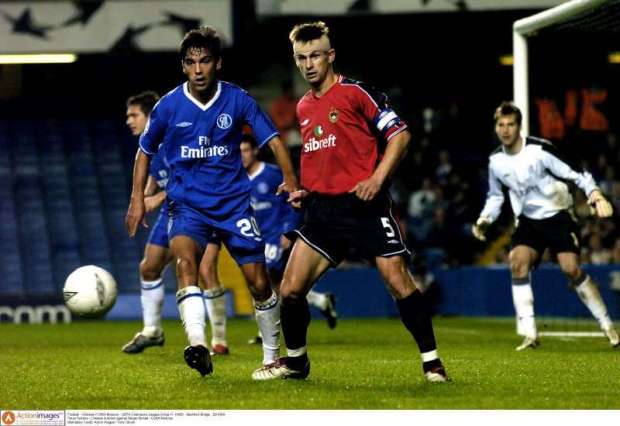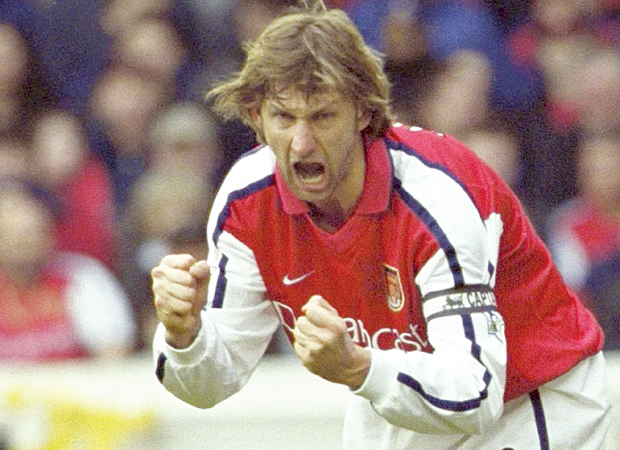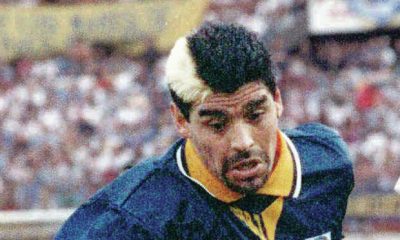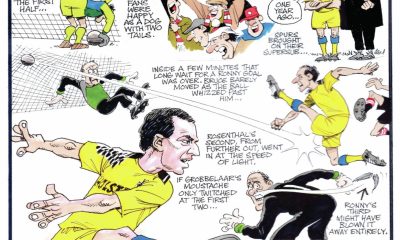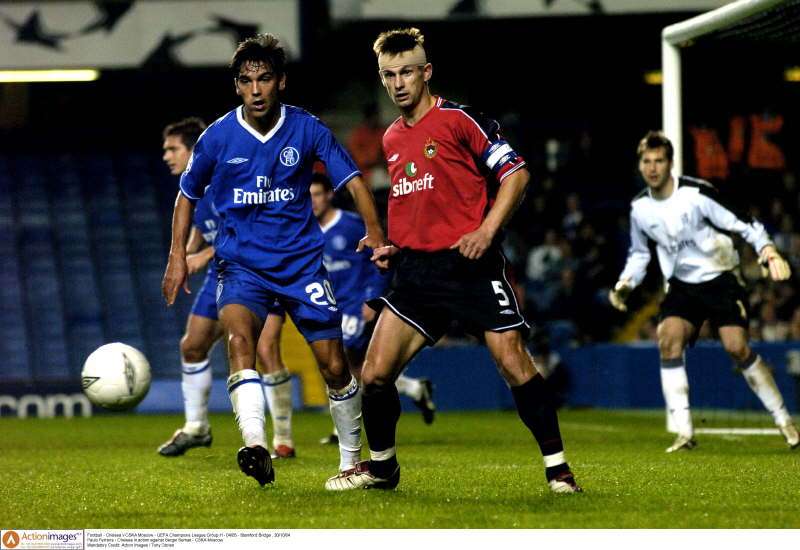
Danny Armstrong takes a look at the career of one of Russia’s best-ever midfielders and leaders..
In 1938, just a year before the bubbling unrest in Nazi Germany spilled into the horrors of World War Two, Donetsk Oblast, the easternmost province of Ukraine was cracked into two portions.
One was christened Stalino after Joseph Stalin; the other Voroshilovgrad in honour of the great military officer Kliment Voroshilov.
Three years later Voroshilov, a man of proud Ukrainian heritage, would valiantly counter- attack advancing German tanks armed with only a pistol during Operation Barbarossa. This single act of bloody-minded defiance immortalised his iconic leadership.
It is perhaps fitting that Russia’s next great leader was born in the oblast that bore his name.
Sergei Bogdanovich Semak was a midfielder who was reserved but fervently reliable, industrious yet technically gifted. It would be Semak who would lead Russia into some of the greatest victorious battles in their footballing history. Born in Voroshilovgrad in 1976, Semak emigrated to Russia after the Soviet Union crumbled – later becoming a naturalized citizen – and began his career training with Asmaral Moscow.
Aged 16 he turned professional and broke into a first team that gained promotion to the Top Division. By the time the club were relegated the season after, Semak had attracted the attention of neighbours CSKA who bought him in 1994.
The slight teenager was soon a permanent fixture in the side and later became captain, guiding the club to a trio of domestic victories in the early 2000s, beginning with Cup and League wins in 2002 and 2003 respectively, and a Super Cup victory in 2004, ending an 11- year silverware drought for the club. As the relentless driving force behind CSKA’s success, Semak was attracting attention from abroad.
After his sublime hat-trick in Parc des Princes knocked Paris Saint-Germain out of the Champions League group stage in December 2004, the French club signed him a month later. PSG captain José Pierre-Fanfan was quick to insist there were no hard feelings harboured: “He’s welcome here. We’re not angry with him at all.”
Whatever the sentiment, the irony of his move would become a mainstay of his time in France.
Despite his unparalleled dynamism, Semak wasn’t showered with plaudits from Russian fans in the same way as an Arshavin or a Kerzhakov. He would often be taken for granted, the team being constructed around him as a course of nature.
At PSG, Semak was met with a familiar lack of reverence only this time it was not compensated by his necessity in the side. The fans didn’t see him as vital; rather another unknown signing to wean the team off its reliance on talisman Jeremy Rothen.
At the time of his arrival, the club lay ninth in Ligue 1. “That can change fast,” Semak optimistically predicted. It didn’t, and the reality was PSG finished there.
Back in Moscow, CSKA won the UEFA Cup, their first and only European trophy. Semak received a winner’s medal for playing in the early stages of the campaign. His highest honour with the club was awarded for only minimal input, contrasting previous Herculean efforts.
Midway through the following season, Semak left Paris for newly-formed FC Moscow after only 27 appearances in exactly a year for PSG. Despite the French side’s continued unspectacular form and identical league finish, they won the 2006 Coupe de France.
Semak received a winner’s medal courtesy of a solitary appearance in the tournament, his victory hollowed further by again being the distance between Paris and Moscow when his ex-team mates lifted a cup.
Despite disconsolation in France, playing back on home turf for the Muscovite side galvanised Semak and his performances earned him a move east to Rubin Kazan in 2008.
That summer was probably the most definitive of Semak’s career.
By the time the Euro 2008 finals in Austria and Switzerland came around, he was already instrumental for Russia since making his debut against Italy in 1997. He proved he was able to mix it with the world’s finest just two years later in a midfield that outshone Petit and Deschamps as Russia recorded a famous 3-2 away win over world champions France in a Euro 2000 qualifier match.
Eleven years on and despite being left out of the squad for the qualifying rounds, Semak returned to captain the side in the finals alongside Sweden, Spain and holders Greece in Group D.
After finishing second with six points after victories against Sweden and Greece, Russia met a much-fancied Netherlands side in the quarter-final.
Semak provided the pass for Pavlyuchenko’s opener in an improbable 3-1 victory after extra-time. The following 3-0 semi-final defeat to eventual winners Spain didn’t fully matter. It gave Russia a third-place finish – their best ever placing in a major international tournament. The team returned home as heroes and Semak had played every minute as captain.
His streak continued with Kazan winning back-to-back titles in 2008 and 2009 along with a second Super Cup in 2010 against his old club CSKA before moving for a seventh and final time to Zenit St Petersburg at the age of 34.
His creative spark lit up even the twilight of his career as Semak won further championships in 2010 and 2012 with Zenit.
“You can’t get used to winning titles,” he joked as he took his personal championship tally to five. He also made it a hat-trick of Super Cup wins in 2011, again playing against CSKA in the final.
Zenit left an indelible impression on Semak and after retiring in 2013 he became assistant coach and was appointed caretaker-manager for the time between Luciano Spalletti’s departure and Andre Villas-Boas’ arrival in March last year.
During his short stint in charge of Zenit he coached them in an away match against title rivals CSKA.
“It’s hard for me,” Semak said on his last game in charge. “But I am happy to go back to my family and to have time to be a good father. I’m training for my coaching licence and this time will give me new chances.”
Semak’s career as a coach so far has been promising. Aside from his continuing assistant coach role with Zenit, he has also taken an assistant’s job with the national side alongside manager Leonid Slutsky, the man who rescued him from his Parisian plight by signing him for FC Moscow.
Most likely Semak will continue to take the back seat and learn his trade at the top level before taking charge of a side in the near future.
Zenit currently trail leaders CSKA and owing to boss Villas-Boas having a sideline ban, Semak had the chance to take the reins for six matches and get a bit more experience in the hot-seat.
His first game in charge was the away match against CSKA, who had won their first seven league matches of the season, a streak Semak’s Zenit ended with a 2-2 draw.
With the Portuguese heading out of Zenit at the end of the season, it isn’t beyond the realm of possibility that that a door could be open for Semak, now 39.
Only time will tell if his natural leadership will transcend the touchline and carry through to management. But with the confirmation that Villas-Boas will leave at the end of the season, maybe that time will come sooner rather than later.
Could we see the re-emergence of one of Russia’s greatest leaders? Only time will tell.

